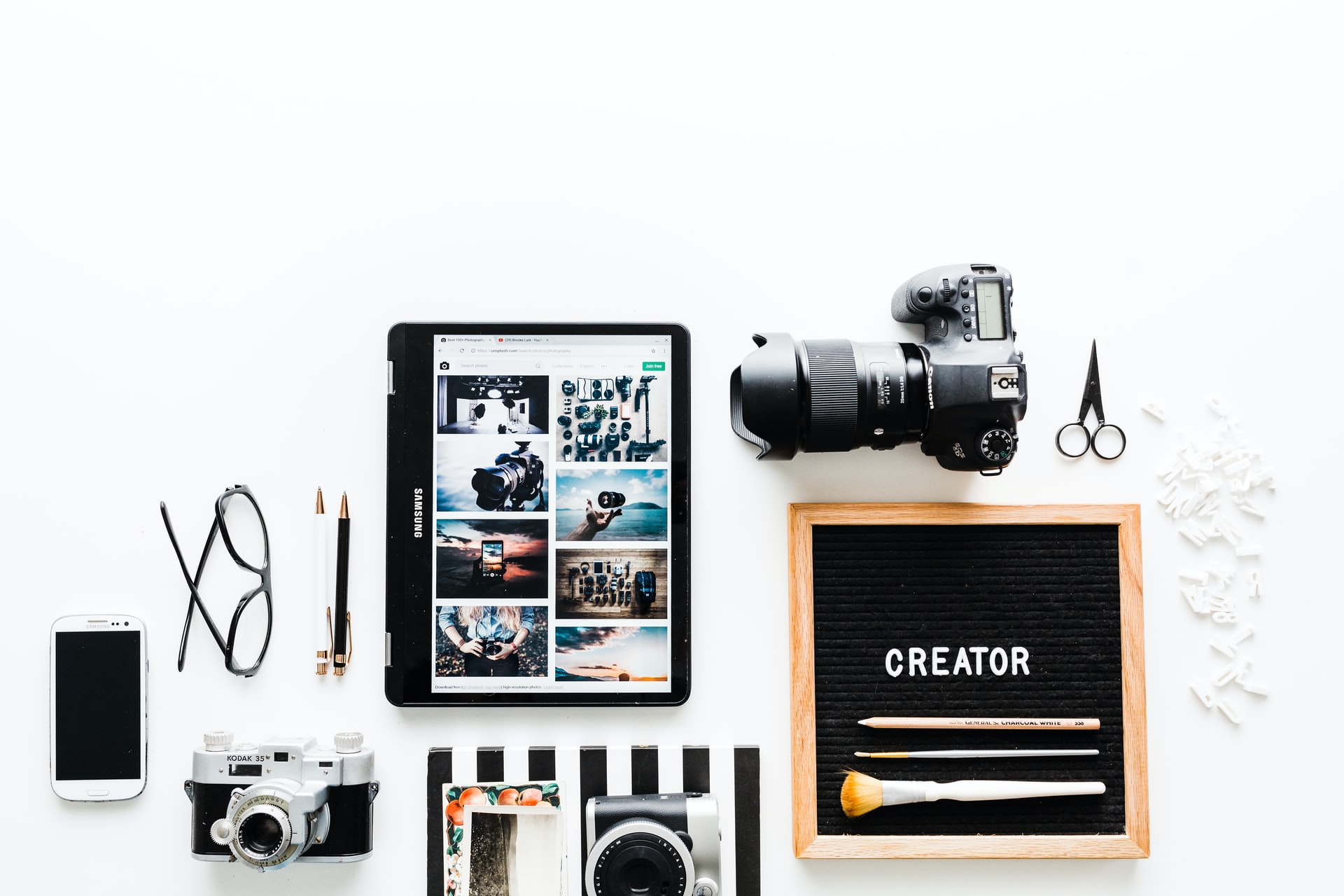
Photographers who are successful have four essential skills. These skills include post-production editing and technical knowledge of lighting. This article will go over each skill in detail. These skills can be learned today. You can read on for more details! You might be amazed at how much you can learn. Become a successful photographer! These are some tips to help you get started in your photography career.
Learn from LIFE Magazine's professional wedding photographer
Wedding photography is both an art as well as a business. You need to master both the art as well as the business. You can then create the images you desire. This course teaches you exactly what it is. This ebook will help you to make the most of your photos. The course includes five video lessons, as well as a 600 page e-book. The program will teach you how to create the perfect wedding photos.
Begin by scouting the location. The best light conditions for your shots will be determined by the location you've scouted. If you work in a large location, you will need to know the best spots to take position shots. Also, a photographer needs to be able to adjust to changes in light. You will be moving around quite a bit so make sure your feet are comfortable.

Ten rules for photography
There are some fundamental things to remember when taking photos. These issues can be categorized into 9 equal segments, and the most important elements should be placed along one or more of these lines. Important elements can also be placed at intersections of more than one line. For example, if you want to capture a landscape, place the horizon along one of the lines. Likewise, if you're shooting a landscape, place the subject vertically, and the background along the other line.
Although there are many photography rules, they are not necessarily set in stone. They are meant to be guidelines, not rules, and sometimes, you'll find that the rules will apply to your scene just fine. These rules are not meant to be broken. You can improve your photography skills and be more creative by following these rules. These are some basic elements of photography composition.
Communicating with your subject
Photographing great photos requires more than technical expertise and technical technology. Photographers should also be skilled at communicating. If they lack communication skills, viewers will not feel the right emotions. Communication will make the photo look more natural and bring more attention to the subject. Here are some tips to communicate with your subject to capture the perfect shot. Communicate well with them. Your photos will show your professionalism and skills.
Photography is all about communication. It is very important to build rapport with your subject to create the best photos possible. Photography can be stressful and nerve-wracking. Communication is key in all aspects of the job. It is essential to learn how to negotiate with your subject. Also, it is important to understand when to compromise. And to have patience. Photographers who are successful have the ability to tell compelling stories while communicating a clear message to their audiences.

Post-production editing
After you've taken the photos, it is time to edit them to make them look great. Post-production editing involves the addition of effects like brightness, contrast, and saturation to images. Depending on the project, post-production editing may take hours or even days. Here are some suggestions for how to edit photos to increase their quality.
The most important techniques for post-production are color grading, image stabilization, and other related tools. These techniques allow photographers to create stunning digital images. They are also cheaper than long photo shoots. Noise reduction is another technique that post production editors can use to enhance photographs. The noise value can be reduced to make a blurry photo look more clear. An expert can help reduce noise levels to make images look more natural.
FAQ
Where to Buy Cameras?
You can find many places online to buy cameras. We recommend purchasing from a trusted retailer such as B&H Photo Video. Their knowledgeable staff can answer any questions that you might have.
B&H ships securely and quickly, so you can get your order delivered right at your door.
This video will help you learn more about buying cameras.
What makes a good camera backpack?
Camera bags are essential for protecting your gear during travel. Here are some factors to keep in mind when choosing a bag.
-
Sizing: A large bag will hold your camera and other accessories. Do not buy more than you need.
-
Durability: Buy bags made of durable materials like canvas, nylon or leather. Avoid plastic and fabric bags.
-
Protection: Make certain your bag is protected against dirt, dust, moisture, and scratches
-
Organization: Consider organizing your gear by type to easily access your needs. Your lenses, memory cards, and battery charger can be placed in different compartments.
-
Comfort: Keep your hands free when shooting by using a shoulder strap instead of a handbag. You should also look for a design that is comfortable and has padded straps.
-
Price: Look around for the best price. You may find some brands that sell their products at a discount price, which is a great bonus.
-
Warranty: Ask if the company offers a warranty on its products. This will allow you to know who to contact if your bag becomes damaged.
Should I start photography as a hobby?
Photography is a wonderful way to share memories with family and friends. It allows you to discover more about the world.
You can find many online resources to help you learn how to take better photographs.
You might also consider enrolling in classes at nearby community colleges or art schools. This gives you the opportunity to meet other photographers, who can offer valuable feedback.
What camera is the best for beginners, and why?
The best camera for beginners will depend on your budget, needs and level of skill.
For instance, you could choose a point & shoot digital camera if your goal is to save some money. These cameras are not very versatile but offer excellent quality.
A DSLR (Digital Single Lens Reflex) camera has interchangeable lenses that let you shoot different types of shots. While they are more expensive than point and shoots, they offer much more flexibility.
A beginner's kit for beginners is a good place to start. You'll find everything you need in one package, including a camera body, lens, memory card, tripod, and flash.
Make sure to purchase extra batteries.
Statistics
- This article received 13 testimonials, and 100% of readers who voted found it helpful, earning it our reader-approved status. (wikihow.com)
- In this case, 100% of readers who voted found the article helpful, earning it our reader-approved status. (wikihow.com)
- Get 40% off Adobe Creative Cloud(opens in new tab) (creativebloq.com)
- That's the easiest way to get blurry photos 100% of the time. (photographylife.com)
External Links
How To
How to Take Portrait Photos
Portraits are important, because they reveal who you truly are. They also tell your story. Perhaps you have a favorite image of yourself from when you were younger. But now, you want to capture something more. It's easy not to remember how much fun photographing can be. Here are some tips to help you get started.
-
It is important to have enough light. It is best to take portraits in the morning, or late afternoon. Use flash only when there is not direct sunlight. This will wash out any details. Avoid shooting at noon. There will be too many shadows.
-
Use a tripod. When you hold the camera still, you won't see any movement. That means you'll miss the chance to freeze action. And if you're going to use a flash, set up your shot first without it. Then turn off the flash and try again.
-
Take close-ups. Closeups are great to demonstrate detail. However, they can look fake if you don't have good eyes. Look closely at people's eyes, mouths, and noses. Do you see anything strange? Is someone wearing glasses? Are there freckles across her nose? These features add depth and dimension to an individual's appearance.
-
Smiles are not something you can force. Smiles can be difficult. People smile when they feel happy. But some people don't. It's not natural to make them smile if you force them. What makes you laugh? Maybe it's something silly such as watching your cat jump through a hoop. Or maybe you love watching paint dry. Whatever your reason, you can keep thinking about it until the end.
-
Be creative. Many people think they are boring. But being ordinary isn't bad. You can find ways to be different from the norm. Perhaps you ask the person to place his hands behind your back, or pose with his hands behind your back. Another option is to suggest that he wear a funny headgear.
-
Keep practicing. Keep practicing. You'll eventually become more skilled at capturing moments. You will notice more interesting things as you get better.
-
Have fun. You should have fun taking photos. If you enjoy the process, you'll be more likely to do it again. You will likely end up with some amazing photos.
-
Your work should be shared. Once you are able to take high-quality pictures, share them. Explain to them why you took that picture. Show them where you went. Let them know where you went.
-
Be patient. Sometimes things just don't click. It happens for everyone. Don't worry. You can just move on to another picture.